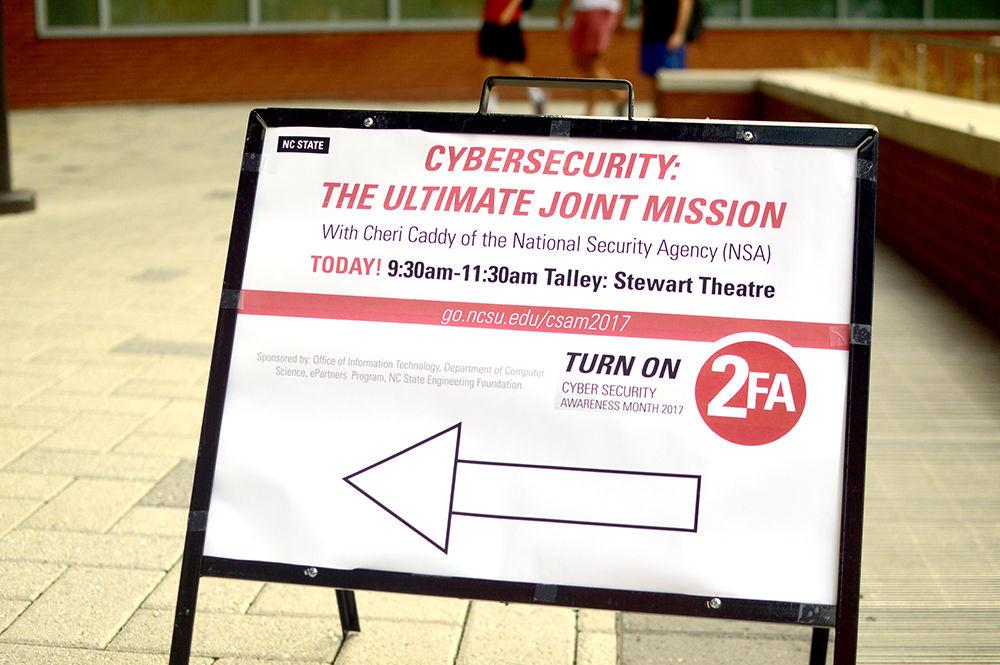Cheri Caddy, current director of the Enduring Security Framework at the National Security Agency and former director of cybersecurity policy at the National Security Council, spoke about her work in the field at Talley Student Union Tuesday morning. The event, which took place in Stewart Theatre, comes as part of the Cyber Security Awareness Month and featured talks from cybersecurity experts.
Caddy addressed the magnitude of cybersecurity, the importance of spreading awareness against unsafe practices on multiple levels and what makes it challenging.
“[Cyber,] it’s different than any other kind of mission that federal government has had to pursue, and really any kind of missions that we’ve had to pursue internationally,” Caddy said. “There’s never been an issue where so many stakeholders were involved. Cyber is really for everybody. Our national dependence on technology is enormous. … And it really requires everybody down to the individual user to everyone to be part of the solution.”
Working at the White House under the previous administration, Caddy wrote cyber policy and was involved in creating solutions to many issues on the international level. For example, in late September 2015, the United States and China reached an agreement regarding cyber espionage and China’s theft of U.S. intellectual property for economic gain.
“We drew a line …” Caddy said. “We said, look, countries spy on each other. All of us have intelligence services, and we all look for secrets to steal from each other for intelligence purposes. That’s normal behavior. Everybody does it. What’s not normal is a state using its national intelligence apparatus to steal economic trade secrets, intellectual property, to benefit its own industries… That’s not a level playing field.”
Professor Laurie Williams, head of the Department of Computer Science, also spoke at the event. Williams reminded the audience to keep their software updated, as outdated software makes personal information vulnerable to attacks.
“Update the systems and devices,” Williams said. “Don’t click on suspicious links to make yourself vulnerable for phishing. Watch where you click or pay to because that’s where binding agreements. Use strong passwords and don’t use the same password everywhere, and use two-factor authentication.”
Informing students on campus of online security problems and encouraging safe practices is one of the main goals of organizing events such as Cyber Security Awareness Month. The vice chancellor for Information Technology and chief information officer, Marc Hoit, spoke about this problem and how it relates to the security of the university.
“It’s a big problem,” Hoit said. “We worry a lot about it. The university has done a number of things to try and help. We watch our security. We have a security team, they do all sorts of good things — [two-factor authentication] is the latest… It’s a tough business, you’ve got to think a little bit about what you’re doing and the information you share. We are trying to protect you.”
Two-factor authentication is a two-step verification process for internet users that helps protect personal information from hackers. Users who enroll in two-factor authentication login to their accounts using a password and an additional security measure, such as a code shared via text message.
October marks the 14th anniversary of Cyber Security Awareness Month, a tradition sponsored by the Department of Homeland Security and the National Cyber Security Alliance. In celebration, the Office of Information Technology is offering students free workshops and training sessions to help students enroll in two-factor authentication throughout October. More information about these services can be found on the OIT website.








